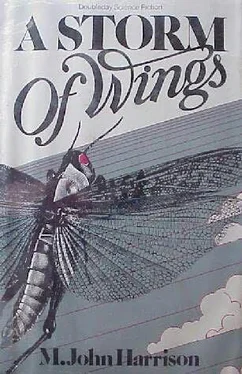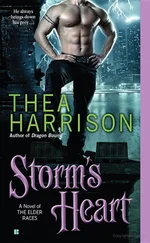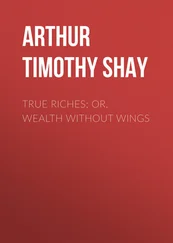M. John Harrison
A Storm of Wings
In the dark tidal reaches of one of those unnamed rivers which spring from the mountains behind Cladich, on a small domed island in the shallows before the sea, fallen masonry of a great age glows faintly under the eye of an uncomfortable Moon. A tower once stood here in the shadow of the estuarine cliffs, made too long ago for anyone to remember, in a way no-one left can understand, from a single obsidian monolith fully two hundred feet in length. For ten thousand years wind and water scoured its southern face, finding no weakness; and at night a yellow light might be discerned in its topmost window, coming and going as if someone there passed before a flame. Who brought it to this rainy country, where in winter the gales drive the white water up the Minch and fishermen from Lendalfoot shun the inshore ground, and for what purpose, is unclear. Now it lies in five pieces. The edges of the stone are neither shattered nor worn, but melted like candlewax. The causeway that once gave access here – from a beach on the west bank where lumps of volcanic glass are scattered on the sand – is drowned now, and all that comes up it from the water is a strange lax vegetation, a sprawl of giant sea-hemlock which for some reason has forsaken the mild and beneficial brine of the estuary to colonise the beach, spread its pale and pulpy stems over the shattered tower, and clutch at a stand of dead, white pines.
In this time, in the Time of the Locust, when we have nothing to ourselves but the hollowness within us, in the Time of Bone, when we have nothing to do but wait, nothing human moves here. Nothing human has moved here for eighty years. Fire, were it brought here, would be pale and dim, hard to kindle. Passion would fade here on a whisper. Something in the tower's fall has poisoned the air here, and drained the landscape of its power. White and sickly and infinitely slow, the hemlock creeps out of the water to run sad rubbery fingers over the rubbish in the fallen rooms. The collapse of the tower seems complete, the defeat of artifice accomplished.
Yet in the Time of the Locust are we not counselled to patience? Eighty years have passed since tegeus-Cromis broke the yoke of Canna Moidart, since the Chemosit fell and the Reborn Men came among us; and in the deeps of this autumn night, under the aegis of an old and bitter geology, we witness here in events astronomical and enigmatic an intersection crucial to both the Earth and the precarious foothold on it of the adolescent Evening Cultures. 'Wait! Things are. Things happen. Only wait!'The estuarine cliffs impend, black, expectant; the air is full of frost and anticipation…
It is the hour of our old enemy, the Moon. Her fugitive reflections shiver on the water amid the cold unmeaning patterns of the wind. Above, her tense circle aches across the sky (imprisoned there within it, staring down, the pocked face of our mysterious crone, our companion of a million-million years). Somewhere between midnight and dawn, in that hour when sick men topple from the high ledges of themselves and fall into the darkness; suddenly and with no warning; something can be seen to detach itself from the edge of that charmed circle and, through the terrible spaces surrounding, speed towards the Earth. It is only a tiny puff of vapour, a cloud of pollen blown across a single ray of light in some darkened, empty room – gone in the time it takes to blink, to rub the eyes and rearrange the waiting brain: but nothing like this has been seen for ten thousand years; and though all might seem unchanged, and the Moon hang never so white and hard over the rim of the cliffs, like a powdered face yearning from a vacant doorway, and the memory decide the eye has played it false – nothing will ever be the same again.
Not many hours later, as the thin, uncertain light of day spreads like smoke between the soft fat stems, limning the fallen column of the tower, a figure emerges from the hemlock thickets – puzzled and reluctant as if harried from a deep sleep – to scan the southern sky where the Moon is still a bone-white image, the cankered face which lingers in a dream. The old man shivers a little, and settles his cloak about his shoulders; they confront for a time, man and planet. But then in an instant, sunrise proper has splattered everything below with blood – the sea, the shore, the hemlock and the old man's cloak all smeared and dappled with it – and he turns urgently away to drag from cover a small crude wooden boat. Its keel grates on the shingle, oars fall whitely on the water. The day brightens, but as he rows, the old man winces from the ominous sky. Beaching his boat on the western shore, muttering and panting with the effort, he pauses at the water's edge for a final glimpse of the tower, locked in its long struggle with decay; then shrugs and hurries up a flight of steps cut long ago into the cliff. While behind him, a single fish eagle with wings of a curious colour beats up out of the bright south and swoops over the island like a valediction.
In the Time of the Locust it is given to us to see such things.
The Reborn Men do not think as we do. They live in waking dreams, pursued by a past they do not understand, harried by a birthright which has no meaning to them: taunted by amnesia of the soul.
Alstath Fulthor, the first of them to be drawn by Tomb the Iron Dwarf from millenial interment in the Lesser Rust Desert, remembered nothing of his previous life: instead, his steps were dogged by a suspicion he could not make plain even to himself. His body, his blood, his very germ cells knew (or so it seemed to him), but could find no everyday language in which to tell him what his life had been like during the frigid lunacy of the Afternoon. Dark hints reached him. But the quivering fibrils of his nervous system were adjusted to receive messages dispersed a thousand or more years before, intimations faded on the winds of time.
In the months following his revival he dreamt constantly: Sometimes of a large silver insect, clicking and metallic, the life-cycle of which he was able to observe in all its main aspects; at others of a woman (who sat alone in a room so tall that its ceiling was a web of shadow, spinning a golden thread which, of its own accord, rose and flickered from her hands until it filled all that mysterious, immense, whispering space above her). In the ruck and ruin of Soubridge, with its warehouses full of rotting fish and massacred children, during the long icy march through the Monar Mountains in winter, and at the storming of the North-East Gate, these images came repeatedly between him and the battle: the insect with its expressionless faceted eyes, the woman with her jewelled spinaret. (Often he inflicted dreadful cuts on its carapace; or smeared her sleeve with blood; and once, as he fought his way through the streets of Viriconium to shake the hand of Tomb the Dwarf over a heap of Northmen's corpses, the flames along the Proton Circuit merged for a moment with the woman's strange writhing skein, so that his past and his present crackled in a lightning arc through his mind and he fell on his face blinded, and was taken for dead, no longer able to tell which was real – the airy whisper of the city fires or the roaring of that golden cloud… ) Steadily though, as if he were leaving the haven of some second childhood, even these reference points seemed to be withdrawn from him, to be replaced by a rushing chaos, the sense of an act of memory continually performed without relief, a hidden river in the night, from which might sometimes surface unbidden some fragment of an event drifting like a dead branch amid the unidentifiable rubbish of the tides…
A face stalked him between the twilit stacks of the ancestral library, bobbing like a balloon. It came very close to his, twitching and dissolving under the impact of some deeply felt emotion, then retreated with a hiss of indrawn breath;
Читать дальше












